X
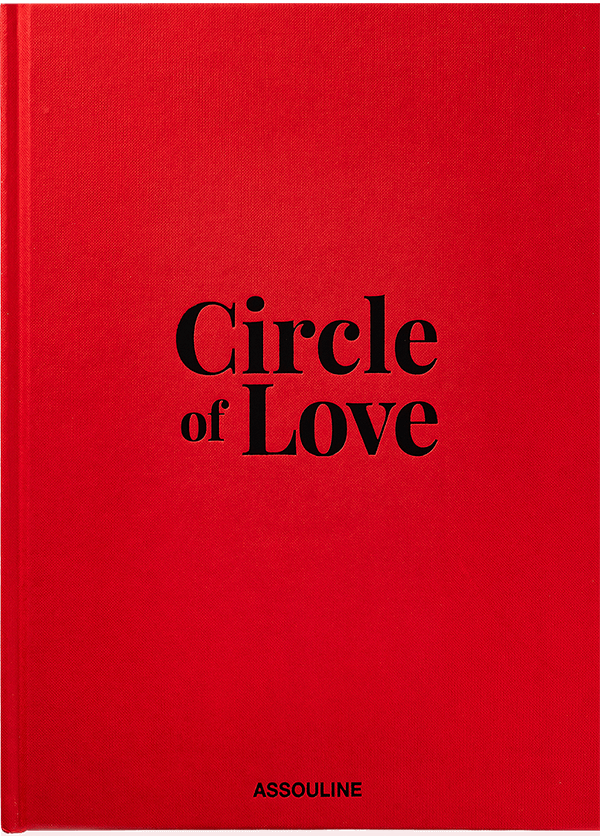
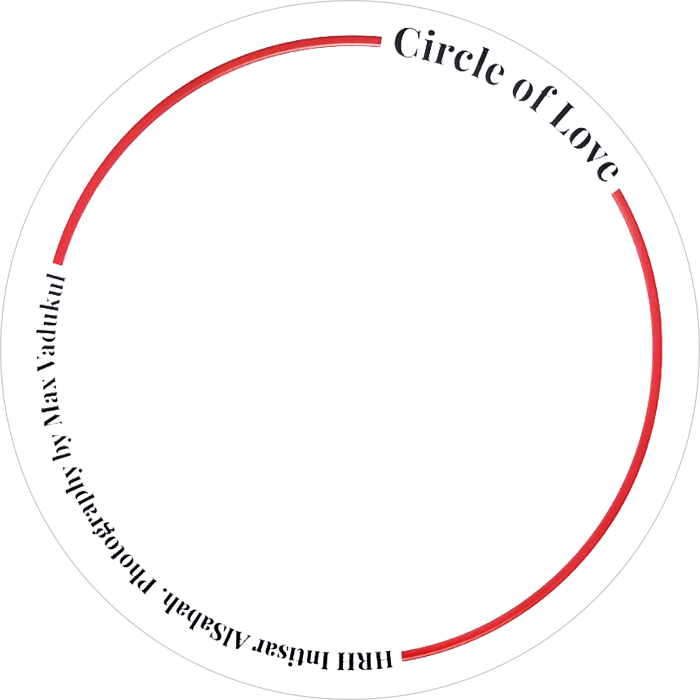
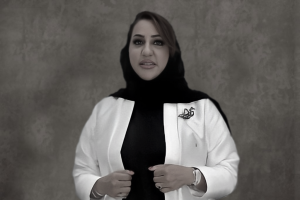
“ When we talk about women who have been through war and violence, PTSD hits them so hard but much later on, because they carry so much on their shoulders by taking care of their families. After some time, they start slowly regressing and descending, they feel so broken and don’t feel they are good enough. It is very difficult for them to build themselves up, and that is why an initiative, such as the Intisar Foundation or our work in this field since 2014, is so important. ”
Please tell us more about your work on improving the mental health and wellbeing in Oman and the GCC region.
My journey with mental health and wellbeing started at the Sultan Qaboos University Hospital in Oman 21 years ago, where I observed the needs of our society and how we should fulfill those needs. I used to notice that people would deliver care in a way that did not talk to every walk of life or to every educational background. So, during this period of my career, I trained in various places and gathered different tools so that I could know and really understand what I needed to do to help people.
From this point, I started thinking how I could help not only Oman but the whole GCC and the Arab world, and also internationally. Today, I am happy to say that our awareness campaign for mental health #NotAlone has reached international audiences. Also, we have clients from all around the world coming to our clinic Whispers of Serenity, which I opened after being at the Sultan Qaboos University Hospital for more than a decade.
I think that the idea of improving mental health in Oman and the GCC region was firstly about improving our skills and gathering tools, and secondly, about sending out information and creating awareness campaigns that are easy to understand and encouraging people to seek help. We use drama, art, music, as well as traditional forms of therapy in groups or individually.
Having this kind of platform and introducing it to the world has been a plus, and has helped us to learn more about what people go through.
What is your opinion on the organisations and institutions working in the field of mental health support in the Arab world, and especially with Arab women affected by war and violence?
I have noticed so many organisations doing a really great job in being willing to talk about mental health, to adopt and promote it, such as the Intisar Foundation. I am happy that we all have changed how we do things, and that our mental health approach is not as dry and complicated as it was before. However, I do think that we have to do more. This is not because I think that we are not doing enough, but because mental health itself is evolving, our human minds are evolving too, and sadly, we now have more and more people being affected by war.
We need to join efforts more, organisations need to work with each other more, because the stronger we are together, the more we can do.
I want to commend Intisar Foundation’s work in refugee camps, and I believe that we need more of that- to go to refugee camps and help people with their mental health and wellbeing.
Therefore, working together as one, learning more, meaning filling up your toolbox, and finding ways to fund these initiatives so that they can keep on going are my top three-piece of advice for anyone in this field in our region.
There are a lot of techniques from the West which simply don’t work in our environment, and it’s not because we have a lower IQ or because we are not willing to do something new, but because of the way in which we were brought up is very, very different. So, to achieve any progress, we need to make ideas more effective and easier to understand, and this doesn’t apply only to our region but to the whole world.
I have upgraded my knowledge and skills over the years, because I had to develop an approach that suits and helps every client and that takes into consideration their cultural and educational background, and so on. For instance, in this region, we have a lot of beliefs that come from the religion, and culture, but also beliefs around the evil eye, and so on, so we need an approach that suits the specific way in which we think. That is why being creative, and making it lighter and more accessible is so important for anyone who works in the field of mental health and wellbeing here.
Please give us your opinion on the Intisar Foundation’s work and achievements since inception in 2019 until today.
I am impressed with HH Sheikha Intisar and her deep understanding of the importance of mental health for women, especially the survivors of war and violence. It’s always a pleasure to listen to her talk about why she took it upon herself to help these women. Plus, the way in which the Intisar Foundation works is amazing. I also like the great idea of women buying Intisars and Ebbarra jewelry and helping other women at the same time – so, it’s two in one.
I am extremely proud of the work of the Intisar Foundation, and I hope that we will collaborate more and more.
“ I find that Arab women are sometimes very hesitant, even though they are really good, and so, it is their self-esteem that brings them forward or not. Women need to trust themselves.”
What do you consider to be the most pressing challenges faced by Arab women today/in 2022, especially those affected by war and violence?
I find that Arab women are sometimes very hesitant, even though they are really good, and so, it is their self-esteem that brings them forward or not. Women need to trust themselves.
Now, when we talk about women who have been through war and violence, PTSD hits them so hard but much later on, because they carry so much on their shoulders by taking care of their families. So, they don’t have time to take care of their mental health and wellbeing, and after some time, they start slowly regressing and descending, they feel so broken and don’t feel they are good enough.
It is very difficult for them to build themselves up, and that is why an initiative, such as the Intisar Foundation or our work in this field since 2014, is so important.
What would be your top three pieces of advice for Arab women in 2022?
In 2022, my three points for Arab women are, number one, please do not stop supporting and helping each other.
Number two, always remember that you were born powered, God has blesses us all, women have got their strongest features from God, but women often forget that. So, always remember the power that you have within you, and that you might have forgotten because of your environment or some incidents in your life.
Number three is to love yourself, no matter how cliche it sounds. Look after your wellbeing, love yourself in order to be able to look after your environment and your family.
And one more thing I’d like to share with them is that if they feel fear as if you are paralysed psychologically, please seek help. It is not a shame, it is not a weakness, and we all need a time in our lives to reboot and recharge.
“ My three points for Arab women are, number one, please do not stop supporting and helping each other. Number two, always remembered that you were born powered. And number three is to love yourself, no matter how cliche it sounds.”
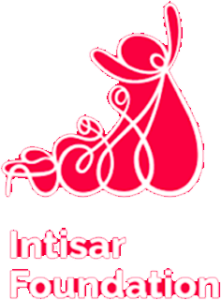
Officially registered as a humanitarian organisation with the Charity Commission for England and Wales in 2019, Intisar Foundation is the first charitable organisation in the Middle East dedicated to providing psychological support programmes of drama therapy to Arab women affected by the brutality of war and violence.
Intisar Foundation
McCarthy Denning, Suite 102,
70 Mark Lane, London, EC3R 7NQ
UK Registration Charity Number: 1182384
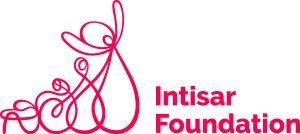
For more than a month, we are witnessing how international humanitarian law fails to protect Palestinian mothers and children.
Day after day, we have been lamenting and denouncing new acts of violence that brought injustice and the bemoaning loss of innocent lives in Gaza.
And yet, Palestinians in Gaza still face new perils with every next hour.
In writing this letter to the world as a demand for action to end this suffering, I join millions of others who have condemned the continued Israeli aggression and call for an immediate ceasefire.
We at Intisar Foundation also invite you to join us in working on preventing this trauma to linger and gnaw through another generation of Palestinians, and Arabs in general.
The mission of Intisar Foundation is to bring Peace to the Arab world through the psychological recovery of Arab women traumatised by war and violence, which can result in the women stopping the continued cycle of violence inflicted on or by them.
In this way, our work helps Arab homes traumatised by violence become more Peaceful again.
The ripple effect of this outcome can be that Peace flowcharts from one Arab home to another, from one Arab community to another, reaching and affecting our whole region.
In its very essence, therefore, Intisar Foundation’s work has always been about breaking the chains of trans-generational trauma.
While I salute people around the world confronting this injustice – from the world’s best universities, influencers, civil society activists and organisations, to ordinary people taking to streets and social media to raise their voices for Peace – I am now certain that we will not resolve the Palestinian crisis only with ceasefires, humanitarian aid, or rebuilding their homes and neighbourhoods.
We need to recover and protect the souls of current and future generations of Palestinians, and all Arabs, from this trauma.
To that end, Intisar Foundation is committed to turning this terrible man-made tragedy into a healing woman-led victory for Palestine, for humanity!
Intisar AlSabah
Leave a Reply